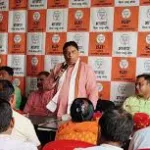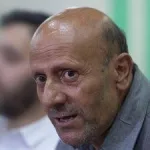Speculations are ripe about the outcome of the Assembly Election results in Jammu and Kashmir. The reason being that in these elections there is a possibility of an unpredictable mandate that can prove to be a game changer. Assembly Elections have been held after a decade and this has led to emergence of new power centres. Though the traditional parties based in Kashmir have tried to garner the support of the masses on the restoration of the special status and the Article 370. It has struck some sort of chord with the people who feel that they have been affected somewhere and lost a kind of protection. But at the same time there is section of the masses that feels the neutralisation has opened new avenues of trade and business transactions that were not possible earlier. This has indeed divided the masses in terms of issues in Kashmir. Obviously, this will have an impact on the preference of the candidates and the parties by the masses. Not only that, the fielding of the independent candidates from the organisations that were not considered as mainstream by the Central Government in terms of their agenda based on the secession from India were also allowed to reach out to the masses and contest the Assembly Elections. What has added to the surcharged election climate in Kashmir has been the participation of the masses in the rallies and then thronging the poll centres for the casting of their votes. A Decade of suspended Assembly had indeed made both the people and the political parties desperate to participate in the electoral process. It is clear that the masses have expressed their political choice with full might this time. The question is what will be the permutations and combinations that will emerge? Both the Congress and the National Conference have shown the confidence to emerge as the formidable force that can form the government. They have even shown the inclination for the like-minded parties and individuals for the government formation. On the other hand, the BJP has been working tirelessly in Jammu and Kashmir for a considerable time now after the three consecutive terms at the centre. BJP’s election in charge Ram Madhav has said that the party will emerge as the single largest party in these elections. But it is pertinent to mention that it did not field any candidate for the Lok Sabha Election from Kashmir. Though it did field the candidates from Jammu. At that time it was predicted by the keen observers of electoral politics that it was a strategy of the BJP to keep the doors open for the negotiations as and when the situation arises after the Assembly Election in Jammu and Kashmir. It is a well-known fact that the BJP has not been able to create a political space that can be converted into electoral gains in Kashmir. Though it managed to mobilise some sections for the party work in Kashmir but the ideological base is missing on the ground zero. This is reflected in the fielding of candidates from Kashmir. Not only that, BJP has been trying to woo the religiously cleansed Kashmiri Pandits to vote for the party in Kashmir. It is a well-known fact that the displaced community has no permanent foothold and constituency in Kashmir after the internal displacement. Moreover they are not a political vote bank. So that way too it has not clicked for the party. It is pertinent to mention that the frontline Kashmiri Pandit organisation, Panun Kashmir had given a call for the Assembly Election boycott on the grounds that the exiled community doesn’t have a constituency in Kashmir after displacement. Its leaders have been vocal to criticise the BJP for neglecting the core issues. In a recent podcast of a leading news agency ANI, Panun Kashmir,Chairman,Dr.Ajay Chrungoo has laid bare the political faultlines in Jammu and Kashmir and the challenges before the community with Smita Prakash. Thus keeping the ground situation in view the political calculus that will emerge once the results are declared will indeed have many surprises.
Speculations Galore in J & K

Sign Up For Daily Newsletter
Be keep up! Get the latest breaking news delivered straight to your inbox.
By signing up, you agree to our Terms of Use and acknowledge the data practices in our Privacy Policy. You may unsubscribe at any time.
Leave a Comment Leave a Comment





